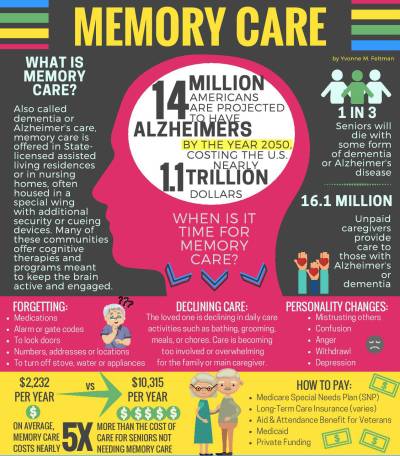All Categories
Featured
Table of Contents
- – Alzheimer Care Near Me Pala, CA
- – Heaven Heights
- – Alzheimer's Care At Home Pala, CA
- – Alzheimer's Care Near Me Pala, CA
- – Senior Assisted Living Pala, CA
- – Senior Assisted Living Pala, CA
- – Alzheimer Care Pala, CA
- – Home Care For Alzheimer's Pala, CA
- – Alzheimer's Care At Home Pala, CA
- – Heaven Heights
Alzheimer Care Near Me Pala, CA
You may have the ability to get aid from relative, neighbours, volunteers or agencies. Some aid may be offered through the Home Care program in your area at no or affordable. Get in touch with your neighborhood Alzheimer Society to find out more on solutions available in your location. Providers that can assist include:: They provide personal care in the house, assisting with eating, clothing and bathing as well as light house jobs.
: Nursing services supply experienced experts in the home.: These programs offer home-delivered dishes to aid give healthy lunches and dinners.: These provide a pleasant visitor (paid or volunteer) to hang out with the person doing an activity such as walking.: These supply social communications for the person in addition to respite for the caregiver.

Providers for the senior and their caregivers vary in various provinces, territories and areas. You can figure out what services are offered in your area from a variety of sources: Your local Alzheimer Society Your family medical professional, wellness center or social worker The general public health and wellness division in your area Community companies Your buddies, family members, neighbours, especially if they have been caretakers.
Alzheimer's Care At Home Pala, CA
An enjoyed one with dementia will certainly require assistance in the home as the condition obtains worse. You can aid by attempting to recognize exactly how the person with dementia regards their world. Give the individual a possibility to talk concerning any kind of challenges and take part in their own day-to-day treatment. Begin by chatting with your liked one's health treatment supplier.
Household image cds can be useful. Try to preserve a regular rest and consuming schedule. Keep lights on at evening. Use pointers, notes, listings of routine jobs, or directions for day-to-day activities. Stay with an easy activity timetable. Discuss existing occasions. Taking normal walks with a caregiver can aid boost interaction skills and stop roaming.
Alzheimer's Care Near Me Pala, CA
Individuals with dementia ought to have their eyes and ears inspected. If problems are found, listening to help, glasses, or cataract surgical procedure may be needed. People with mental deterioration ought to likewise have regular driving tests. At some time, it will not be safe for them to proceed to drive. This may not be a simple choice.
State laws vary on the capacity of an individual with dementia to proceed to drive. People with mental deterioration usually forget to consume and drink, and can come to be dried as an outcome.
Senior Assisted Living Pala, CA
If they stray, their caretaker can contact the cops and the national Safe Return workplace, where info regarding them is kept and shared across the country. At some point, individuals with mental deterioration might need 24-hour monitoring and support to give a safe environment, control aggressive or upset habits, and meet their needs. LONG-TERM CAREA individual with dementia might require surveillance and assistance at home or in an institution.
They consist of: Adult protective servicesCommunity resourcesLocal or state federal government divisions of agingVisiting nurses or aidesVolunteer solutions In some areas, dementia-related support groups might be readily available. Family therapy can assist household participants manage home care. Advancement instructions, power of attorney, and various other legal activities may make it easier to decide on care for the person with dementia.

There are support teams that can provide details and resources for people with Alzheimer illness and their caretakers.
Senior Assisted Living Pala, CA
These inquiries and sensations are typical. With an early diagnosis, you and the person with dementia currently have the chance to make decisions regarding the future with each other, consisting of lawful, financial, and long-lasting treatment preparation. The person living with mental deterioration can benefit from available treatments or engagement in clinical tests and you both can take advantage of neighborhood sources and support solutions.
The role of a treatment companion is not limited to partners, companions or close relative. Care partners might include "family members of choice" such as pals, next-door neighbors or long-distance family members. If you are providing support as a secondary or remote care partner, it might be tough to determine the precise degree of support needed without straight observation.
Alzheimer Care Pala, CA
One of the best obstacles care partners face is not recognizing just how much help to offer or when to give it due to the fact that the individual with early-stage mental deterioration is mainly independent with dressing, showering, walking and may still drive, volunteer or job. One of the most difficult jobs may entail handling a day-to-day routine or household budget plan.
Every partnership is different, but discovering equilibrium in between interdependence and independence might enhance confidence for both of you. Download and install, print and maintain the checklist convenient to stop dangerous situations and help make best use of the individual dealing with dementia's independence for as lengthy as feasible. To assist you figure out when and exactly how to supply one of the most ideal support to a person living in the beginning of dementia think about these ideas used by other care partners: Is there an instant safety and security threat for the person with dementia to perform this job alone? If there is no instant threat of injury or injury, give motivation and remain to give guidance as essential.
If you recognize that grocery buying will certainly be irritating for the person with mental deterioration, ask for their engagement to outline a weekly menu and arrange a grocery checklist. Presume that the person with dementia can completing the task. If you sense aggravation, attempt to recognize the cause of the irritation before interfering.
Home Care For Alzheimer's Pala, CA
Ask the individual with dementia what they require or the aggravations they might be experiencing. Talk concerning it, then make a plan.: Find tasks to do together and keep the conversation going about expectations for how you will provide support. Check in consistently by asking the person with dementia if you are offering a degree of help that is comfy or ample.
While everyone experiences the early phase of mental deterioration in different ways, it is typical that a person in the early-stage might require cues and pointers to aid with memory. As a treatment companion, it might be necessary for you to take the initiative to establish how you may be able to help.

Providing assistance to a person living with Alzheimer's disease or a related mental deterioration is a recurring and often emotional procedure. As care partner, you may be really feeling overwhelmed by emotions that vary from worry to wish. Home Care For Alzheimer's Patients Pala.
Alzheimer's Care At Home Pala, CA
Learning to recognize your emotions may assist you progress and assist the person with mental deterioration live the very best life feasible. I wasted a whole lot of important time rejecting that this could be feasible, when I can have been obtaining assistance to help me deal with the medical diagnosis. Sarah H., Treatment Partner The diagnosis may seem extraordinary or tough to accept.
Heaven Heights
Address: 2870 Whiptail Loop Ste 218 Carlsbad, CA 92010-6767Phone: (760) 642-2096
Email: innovativeseniorcare@heavenheights.com
Heaven Heights
It also can postpone his or her ability to live a high quality life. If you are experiencing rejection concerning the diagnosis, your ability to help the individual with dementia will be obstructed until you can come to terms with the diagnosis on your own. Fears about the development of the illness and the difficulties in giving future care can be overwhelming and can prevent you from focusing on the here and now.
Senior Living Consultants Pala, CAAlzheimer Home Care Pala, CA
Alzheimers Caregiver Pala, CA
Alzheimer's Care Pala, CA
Care For Dementia Patients Pala, CA
Alzheimer's Caregivers Pala, CA
Alzheimer's Home Care Pala, CA
Home Care For Alzheimer's Pala, CA
Senior Assisted Living Pala, CA
Home Care For Alzheimer's Pala, CA
Alzheimer Care Pala, CA
Services For Seniors Pala, CA
Alzheimer's Care Pala, CA
Alzheimers Caregivers Pala, CA
Alzheimers Home Care Pala, CA
Alzheimer Home Care Pala, CA
Alzheimer Care Pala, CA
Alzheimers Care Near Me Pala, CA
Alzheimer Care Pala, CA
Home Care For Alzheimer's Patients Pala, CA
Alzheimer Caregiver Pala, CA
Alzheimer's In Home Caregiver Pala, CA
Alzheimers Care Pala, CA
Care For Alzheimer's Pala, CA
Alzheimer's Home Care Pala, CA
In Home Alzheimer's Care Pala, CA
Alzheimer's Care At Home Pala, CA
Alzheimer's Caregivers Pala, CA
Alzheimers Caregiver Pala, CA
Senior Living Assistance Pala, CA
Care For Dementia Patients Pala, CA
Alzheimers Home Care Pala, CA
Alzheimer's Care At Home Pala, CA
In Home Alzheimer's Care Pala, CA
Alzheimers Care Pala, CA
Alzheimer Care Near Me Pala, CA
Alzheimer's Care At Home Pala, CA
Alzheimer's Care At Home Pala, CA
Home Care For Alzheimer's Patients Pala, CA
Home Care For Alzheimers Pala, CA
Alzheimers Caregivers Pala, CA
Alzheimers Caregiver Pala, CA
Alzheimers Care Pala, CA
Alzheimer's Care Pala, CA
Care For Dementia Patients Pala, CA
Alzheimer's Care Pala, CA
Alzheimer Care Pala, CA
Senior Assisted Living Pala, CA
Senior Assisted Living Pala, CA
Home Care For Alzheimer's Patients Pala, CA
Care For Alzheimer's Pala, CA
Care For Alzheimer's Pala, CA
Alzheimer's Home Care Pala, CA
Around Here Seo Companies Pala, CA
Around Me Seo Agency Pala, CA
Heaven Heights
Table of Contents
- – Alzheimer Care Near Me Pala, CA
- – Heaven Heights
- – Alzheimer's Care At Home Pala, CA
- – Alzheimer's Care Near Me Pala, CA
- – Senior Assisted Living Pala, CA
- – Senior Assisted Living Pala, CA
- – Alzheimer Care Pala, CA
- – Home Care For Alzheimer's Pala, CA
- – Alzheimer's Care At Home Pala, CA
- – Heaven Heights
Latest Posts
Alzheimer Care Near Me San Ysidro
Care For Alzheimer's Solana Beach
Care For Alzheimer's Encinitas
More
Latest Posts
Alzheimer Care Near Me San Ysidro
Care For Alzheimer's Solana Beach
Care For Alzheimer's Encinitas